Community is Our Superpower: Reflecting on World Refugee Week with Caring and Sharing Rochdale
Celebrating the Refugee Week at our Hub
Celebrating the Refugee Week at our Hub
At Caring and Sharing Rochdale, we meet people at some of the hardest points in their lives. A mum who’s just left an abusive relationship with nothing but a suitcase. A young man struggling with addiction and no one to call. A pensioner sitting in the cold because she can’t afford to turn the heating on.
It’s heartbreaking, but it’s also why we’re here. Because sometimes, all it takes is a bit of the right help at the right time to stop things spiralling. And what might start as a crisis can actually turn into the beginning of real, lasting change.
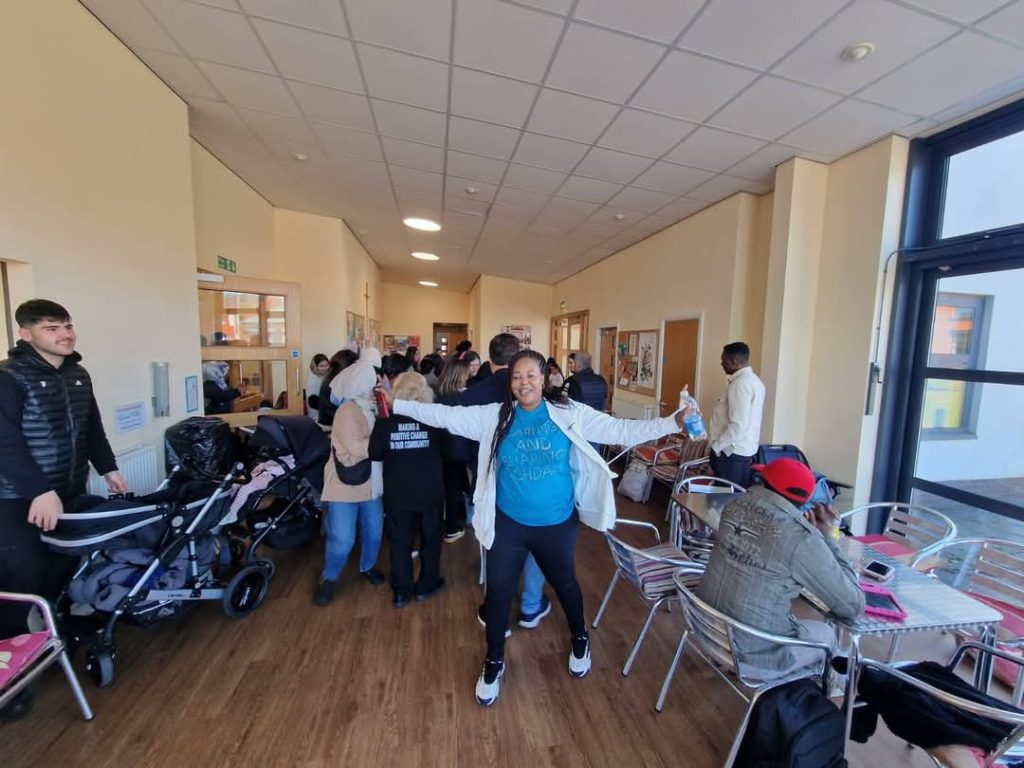
What Crisis Looks Like Here in Rochdale
We all know times are tough right now. Prices are rising, wages aren’t keeping up, and more and more families in Rochdale are finding themselves just one unexpected bill away from serious trouble.
But behind the headlines and statistics are real people, trying their best. And we’ve seen first-hand how a food parcel, a warm coat, or just a listening ear can take someone from feeling completely overwhelmed… to starting to believe in themselves again.
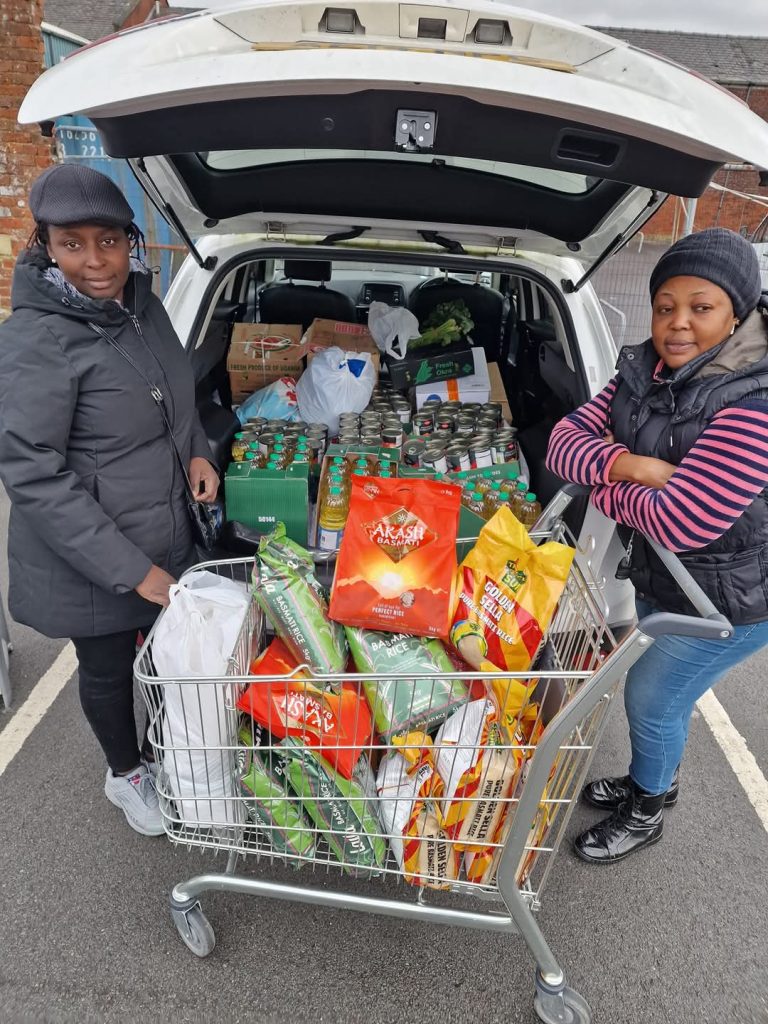
More Than a Quick Fix
There’s a common idea that emergency help is just sticking a plaster on a bigger problem. And yes, we can’t pretend that a food parcel alone will fix everything. But here’s what we’ve learned: you can’t move forward if your basic needs aren’t being met.
Research backs this up, too. A study from the Centre for Homelessness Impact found that when people in crisis get not just emergency support but kindness, follow-up, and someone to walk with them, they’re far more likely to get back on their feet and stay there. That’s what we try to do every day.
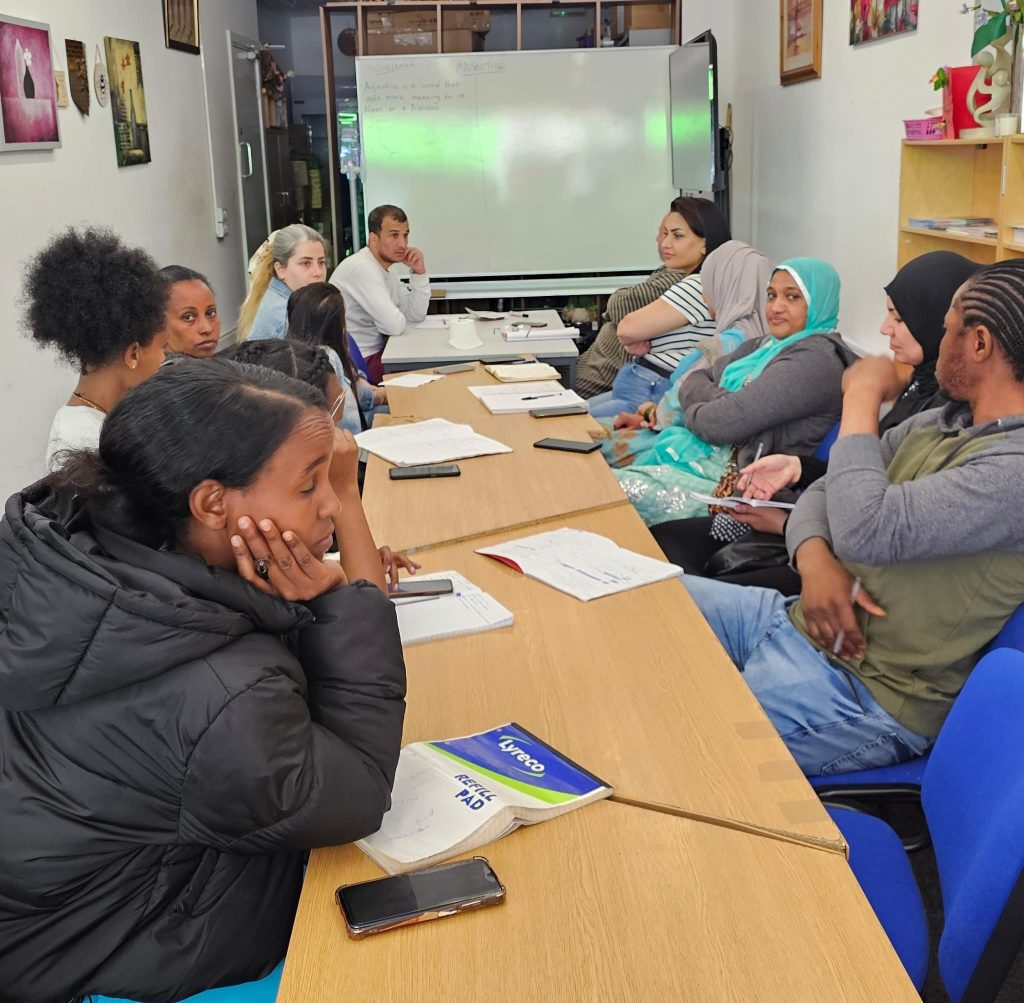
How We Do It at Caring and Sharing
Our approach is simple, really. We treat people like people.
That means:
– We respond quickly when someone’s in crisis – whether that’s with food, clothing, or helping them access benefits.
– We listen, without judgment, to what’s really going on.
– We work with them, not for them – pointing them towards longer-term support, and checking in again later.
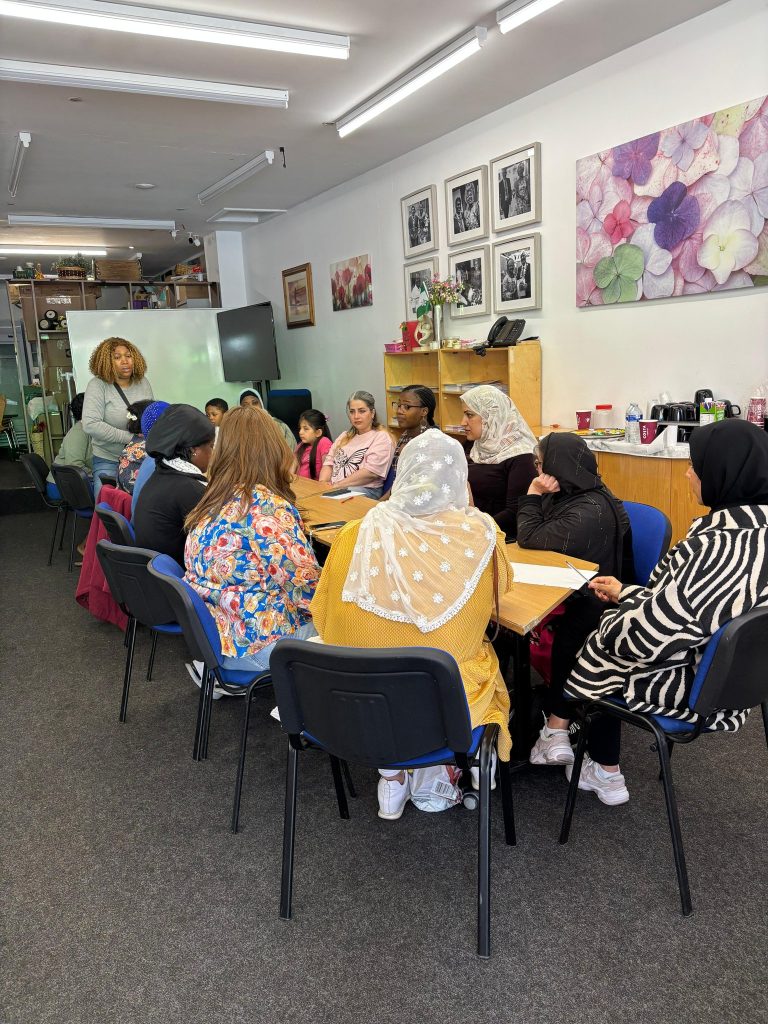
And most of all, we treat everyone with dignity. Because no one should feel ashamed for asking for help.
What’s amazing is how often people come back to us, not for more help, but to give back. They volunteer. They donate. They tell others. That’s when you know something powerful has shifted.
It’s Not Just Here, It’s Everywhere
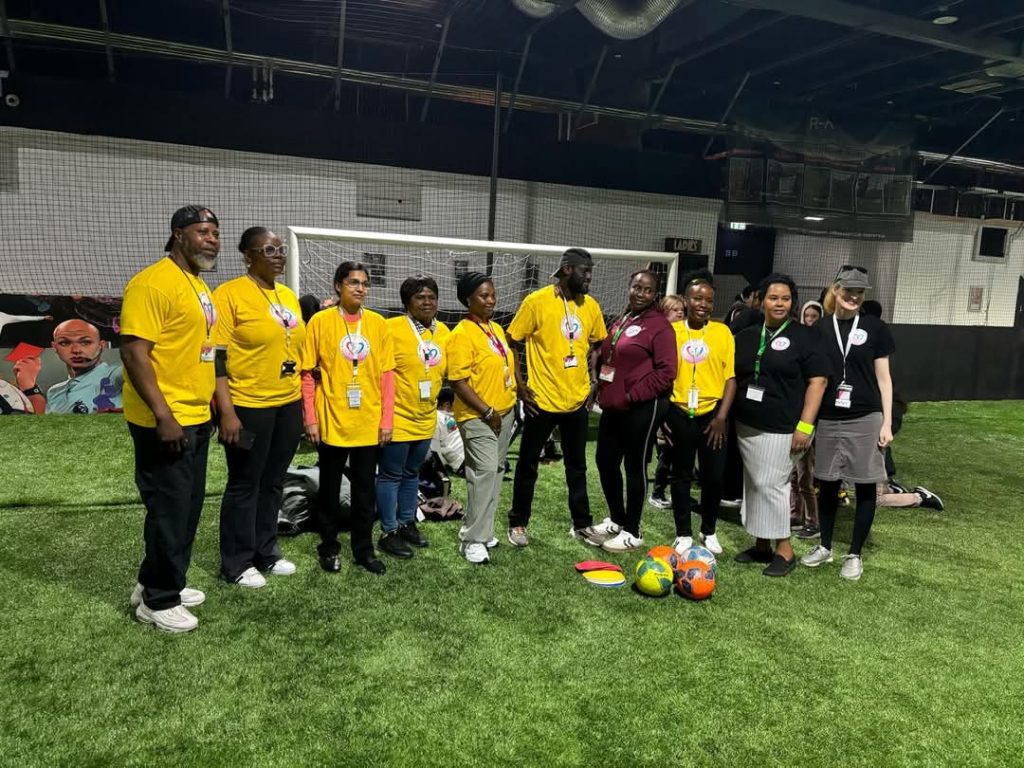
Even though our work is focused on Rochdale, this way of working; meeting crisis with compassion and a plan, works anywhere. Around the world, community organisations are doing the same.
In places like Kenya, India, or the US, local groups are combining emergency help with education and long-term support. The United Nations has even said that the most effective responses to poverty come from the ground up, with people and relationships at the heart.
Whether it’s Rochdale or Rio, when people feel seen, supported, and trusted, they’re far more likely to rebuild their lives.
From Rock Bottom to Rising Up
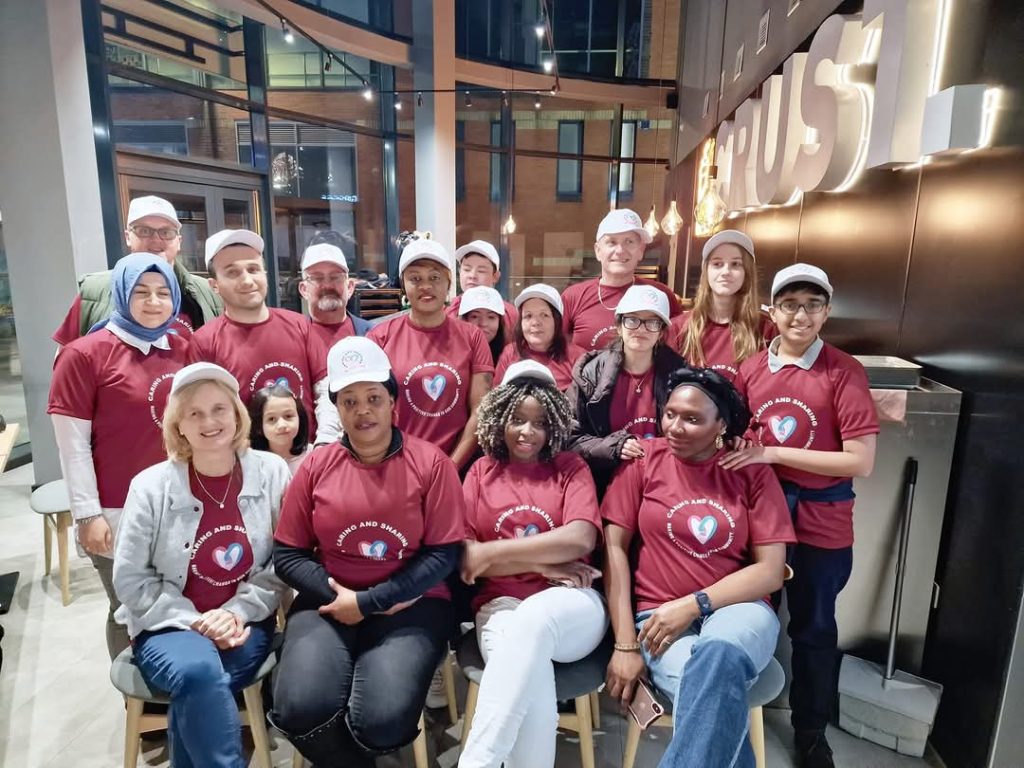
We’ve seen people go from rock bottom to running their own business. From sofa-surfing to stable housing. From silence to speaking up.
That’s not because we had a magic wand. It’s because they were strong, and we were there to remind them of it. Sometimes, you just need someone to say: “You’re not alone. Let’s figure this out together.”
If you believe in that kind of help, we’d love to have you with us. Whether you give a few hours, a few pounds, or just help spread the word, it all helps turn crisis into confidence.
Let’s keep doing it together!
The CAS team in collaboration with the PilotLighters’s team
Engaging in (participatory arts), encourages connections to others, feelings of belonging, and shared identity in a community. These creative arts (music, dance, theatre, creative writing, museums, and heritage) also foster personal development and community and civic awareness – Daykin et al. (2021).
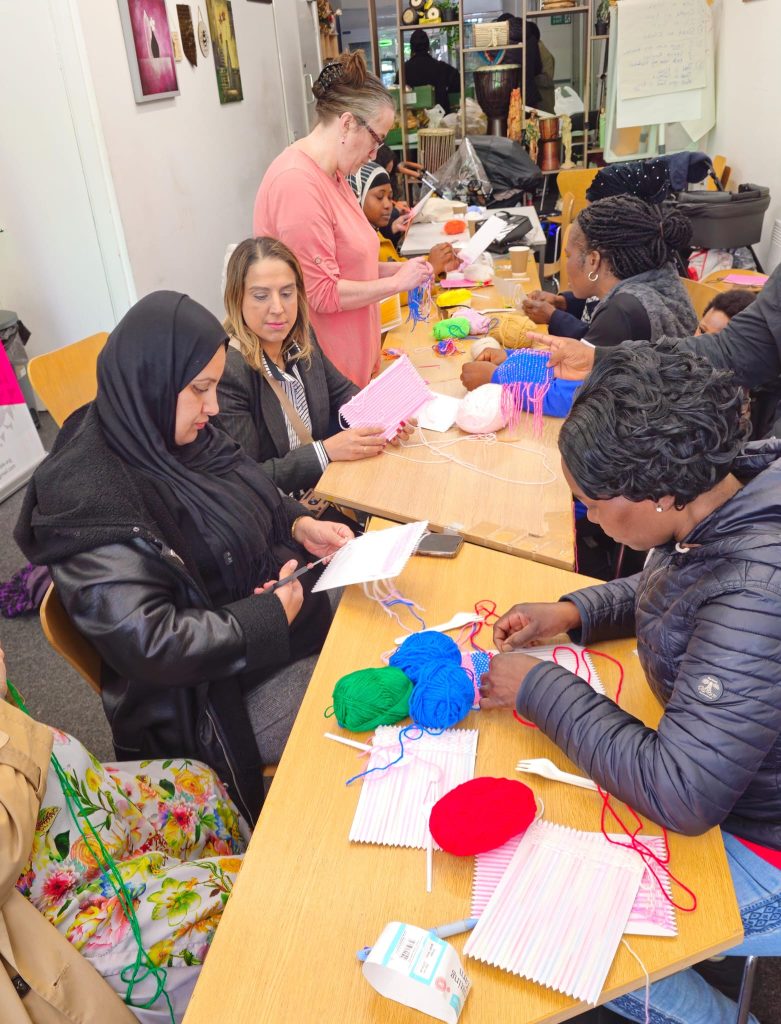
At Caring and Sharing Rochdale, creativity is more than just a pastime, it’s a pathway to healing, connection, and discovery. Our Creative Connection Workshop sessions are designed to celebrate Rochdale’s rich textile heritage while nurturing well being and building community through the power of arts and crafts.
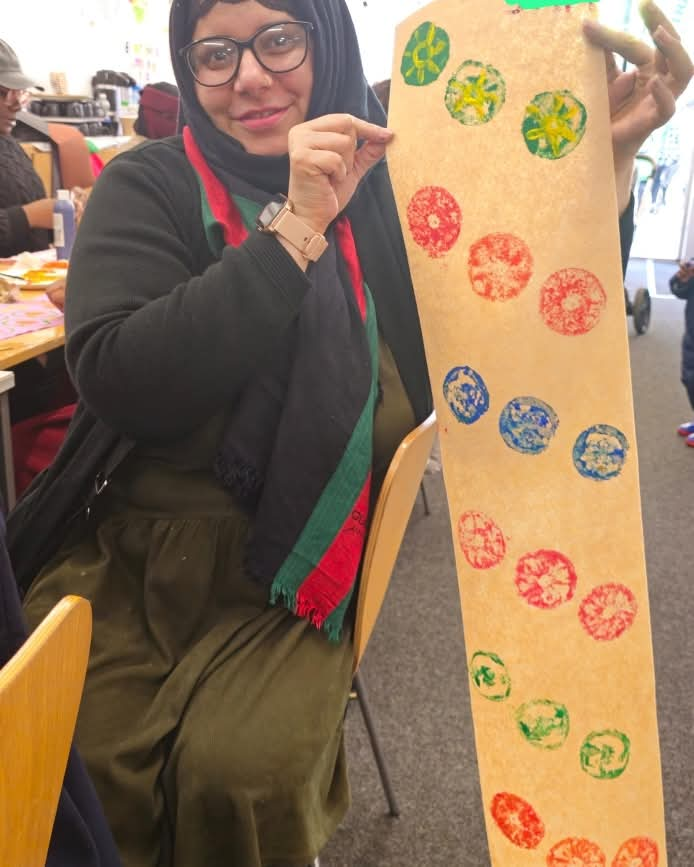
These sessions are far from your typical art class. As soon as participants walk in, they’re greeted by a warm, welcoming atmosphere where creativity flows as freely as conversation. From weaving intricate patterns to designing beautiful textile pieces, each activity is hands-on and guided with care, allowing everyone, regardless of skill level, to learn, grow, and shine.
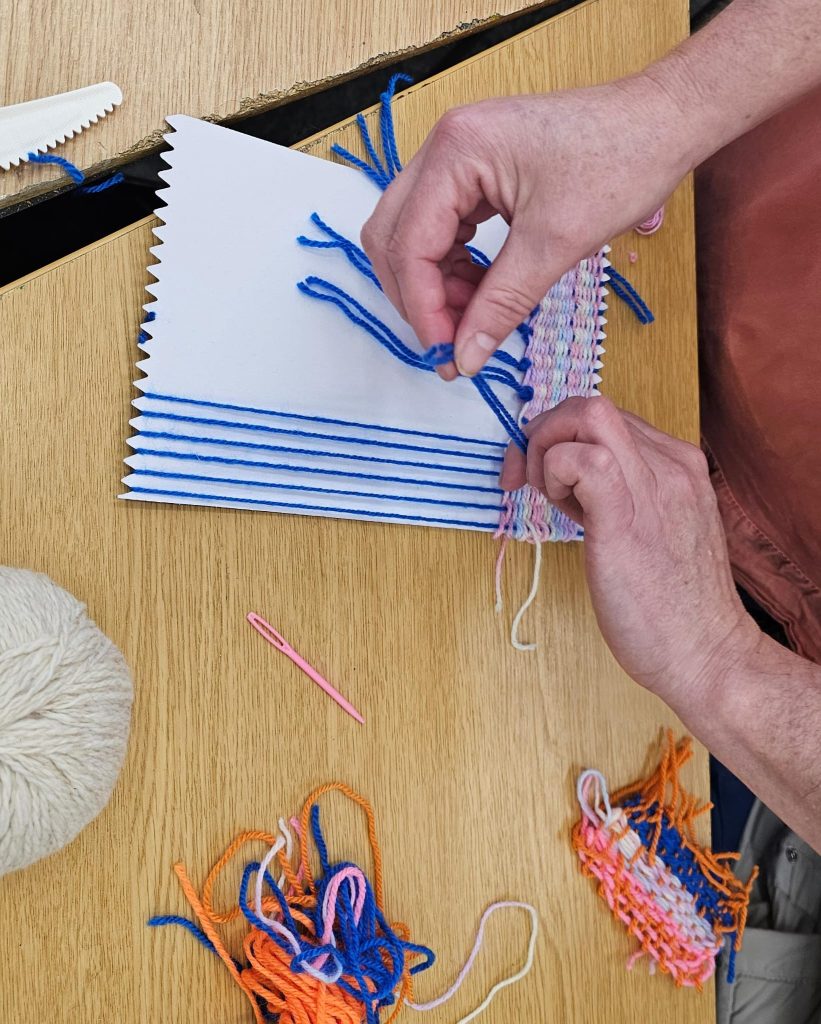
Throughout our sessions, we’ve explored Rochdale’s textile legacy, not just by talking about it, but by actively bringing it to life. We’ve explored natural motif repeat patterns, drawn from the world around us, and used them to design vibrant, expressive fabrics. These artistic explorations connect us to the past while allowing each person to put their own creative spin on Rochdale’s rich traditions.
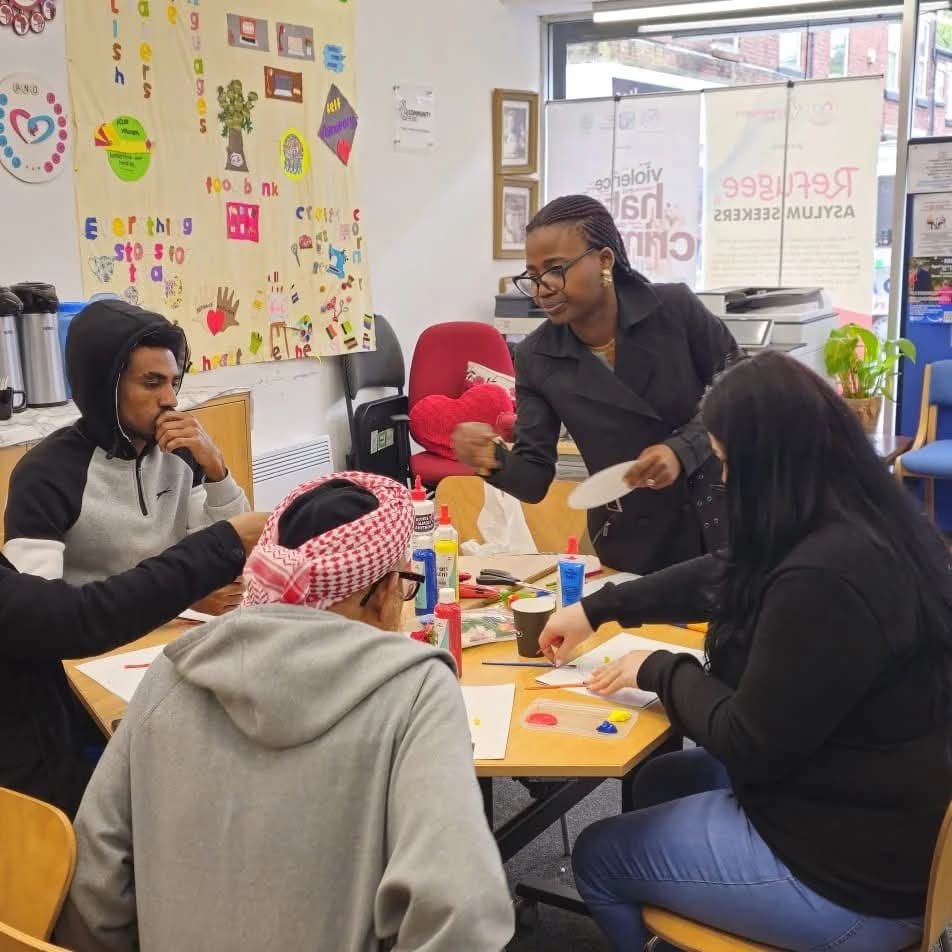
But the magic of the workshop isn’t just in the art we create, it’s in the stories we share and the laughter that fills the room. As hands work on colourful threads and textures, hearts open up. Personal memories are exchanged, new friendships blossom, and a sense of belonging starts to weave itself into the very fabric of the group.
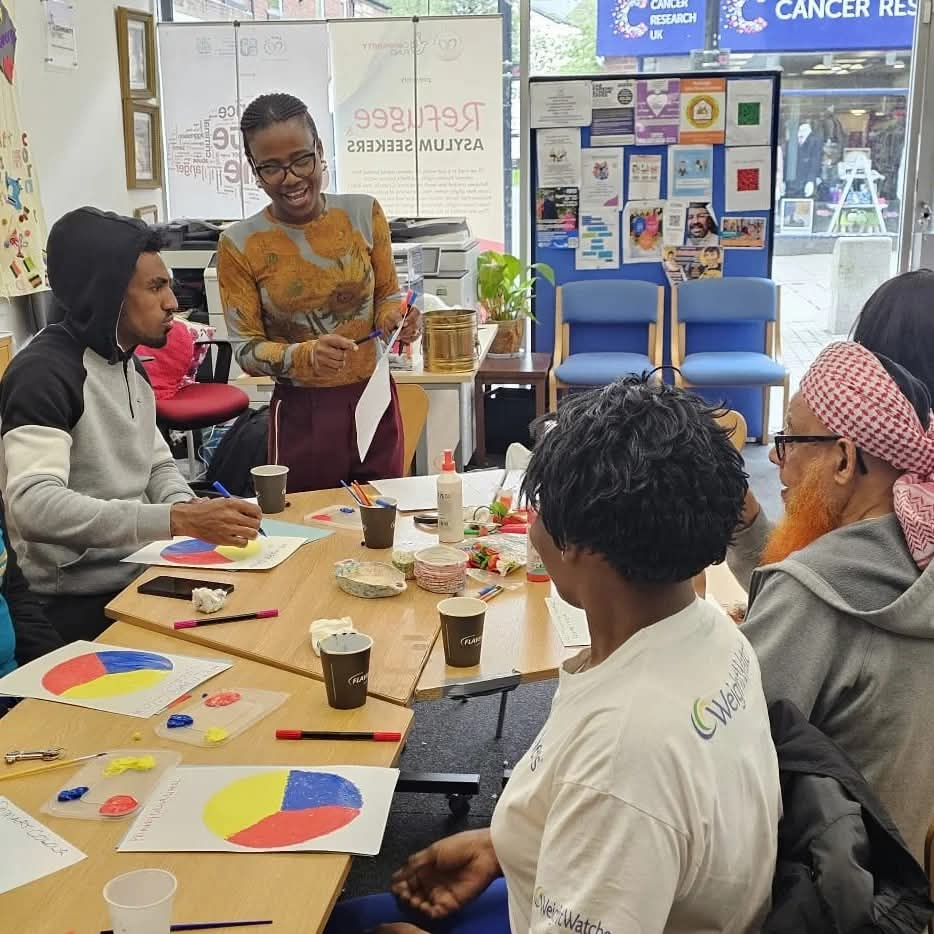
A study published by the National Institutes of Health (NIH) found significant improvements in mental health outcomes among participants engaged in art therapy.
Engaging in arts and crafts has been shown to improve mindfulness, reduce stress, and increase overall well being. It encourages us to slow down, be present, and find joy in the process. Whether it’s the repetitive motion of weaving or the satisfaction of completing a unique piece, these small moments have a big impact on mental and emotional health.
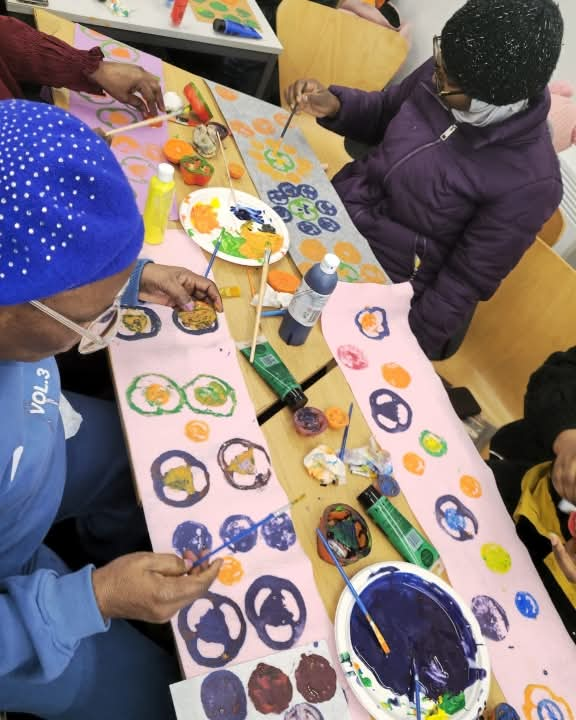
At Caring and Sharing Rochdale, we believe that everyone has a creative spark, and when we nurture that spark in the community, it lights up something truly special.
So whether you’re a seasoned crafter or just curious to try something new, our Creative Connection Workshop welcomes you with open arms. Come for the art, stay for the stories, and leave with a heart just a little fuller.
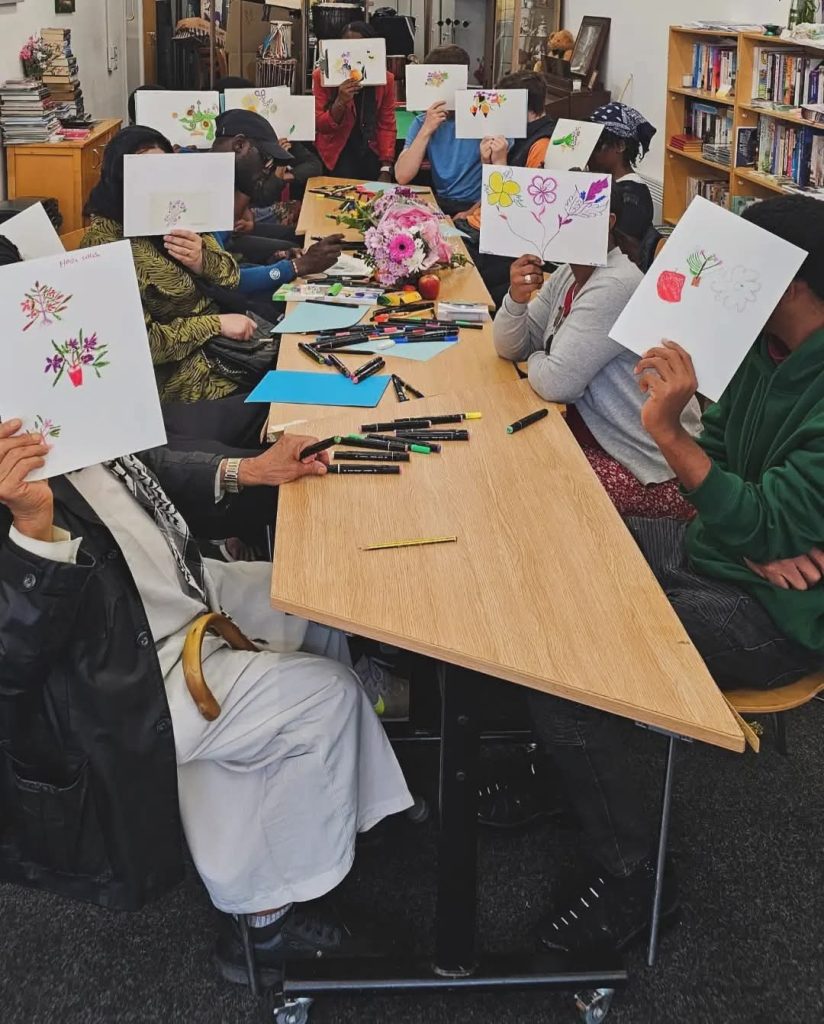
Creativity heals. Community connects. And together, we create something truly beautiful.
There’s no community without charity, and there’s no charity without community. This simple truth is what makes community-led initiatives so vital, and why the support of local authorities is not just helpful, but important.
In towns like Rochdale, the heartbeat of the borough lies in the quiet but powerful work of grassroots charities. These organisations, often founded by residents, neighbours, and lived experience leaders, step in where public services fall short: delivering food, tackling mental health crises, supporting asylum seekers, and offering a sense of dignity and belonging.
But these charities don’t thrive on goodwill alone. They require stable support, accessible infrastructure, and meaningful collaboration from local institutions. In short, community-led charities need community-led backing from local authorities.
Here’s how that can happen, and how Rochdale is leading by example:
1. Long-Term, Flexible Funding
Consistent, unrestricted funding allows charities to innovate and grow. Yet, a 2023 NCVO study found that over 60% of UK small charities rely on short-term funding cycles of less than 12 months. In Rochdale, over 30% of voluntary sector organisations report that funding insecurity is their biggest operational barrier. Rochdale Borough Council has taken promising steps through its Community Investment Fund, helping fill that gap by supporting community responses to poverty, youth violence, and cost-of-living challenges.
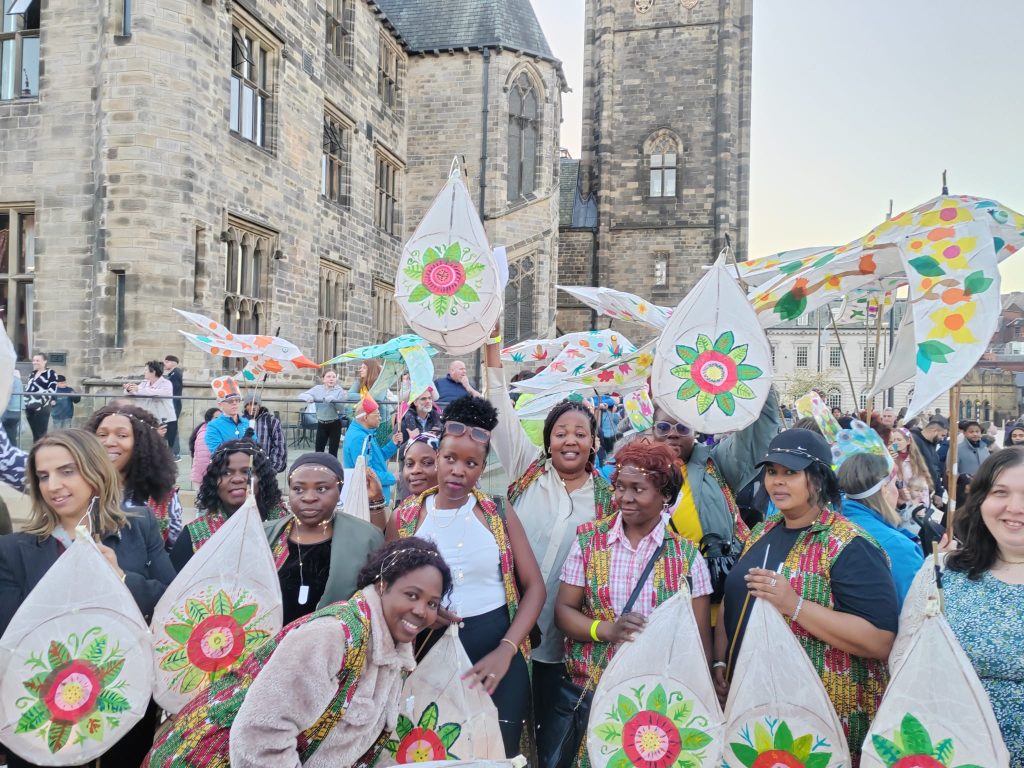
2. Shared Spaces and Infrastructure
Space is power, yet many grassroots groups can’t afford rent or utilities. According to Locality UK, one in four community groups lack access to a stable physical space.
In Rochdale, Rochdale Town Hall has become more than just a civic landmark – it’s increasingly being opened up as a shared, accessible space for the community. Local charities and grassroots groups, including Caring and Sharing Rochdale, have been able to host events, cultural celebrations, and training sessions within its historic halls.
This kind of access to centrally located, trusted public space sends a clear message: the community belongs here. It also provides a dignified setting for initiatives that tackle everything from food insecurity to mental health stigma, proving that local authorities can turn symbolic buildings into platforms for real change.
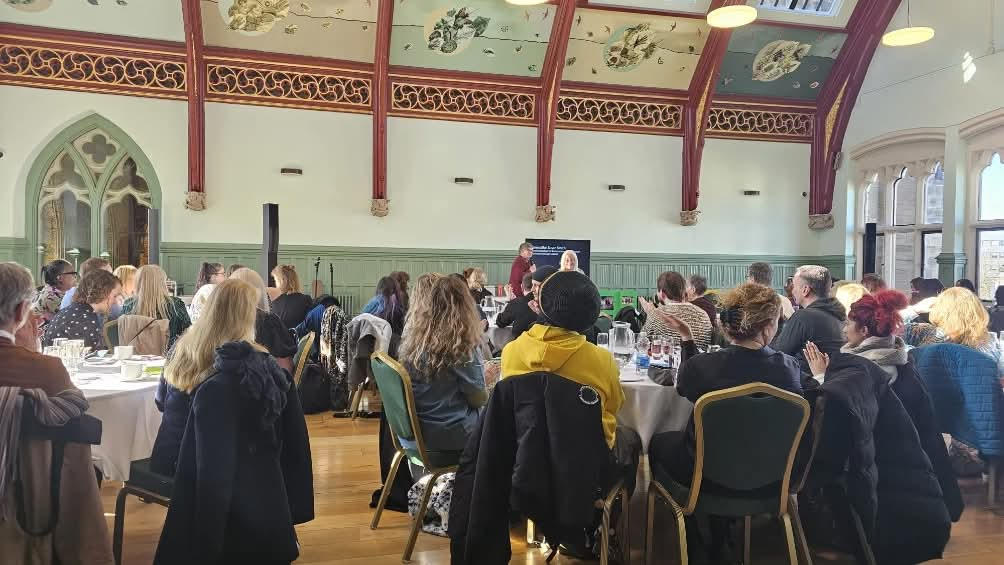
3. Genuine Collaboration, Not Just Consultation
Many charities are invited to conversations, but not to decision making. Only 39% of UK community organisations feel they have meaningful influence on local decisions.
In Rochdale, BHA for Equality is actively changing that. Their work tackles health inequalities by placing lived experience at the heart of public health strategies, especially within Black, Asian, and minoritized communities. Through culturally competent outreach, inclusive research, and advocacy, BHA ensures that marginalised voices shape services, not just receive them.
Caring and Sharing Rochdale proudly collaborates with BHA for Equality, particularly through initiatives like our Women’s Wellness Workshop, which brings together women from underrepresented backgrounds to explore physical and mental health, self-care, and empowerment. This kind of partnership doesn’t just deliver services, it helps shift narratives, build trust, and influence how local systems understand community health.
Together, we prove that when grassroots organisations and equity driven institutions join forces, genuine collaboration becomes a catalyst for lasting change.
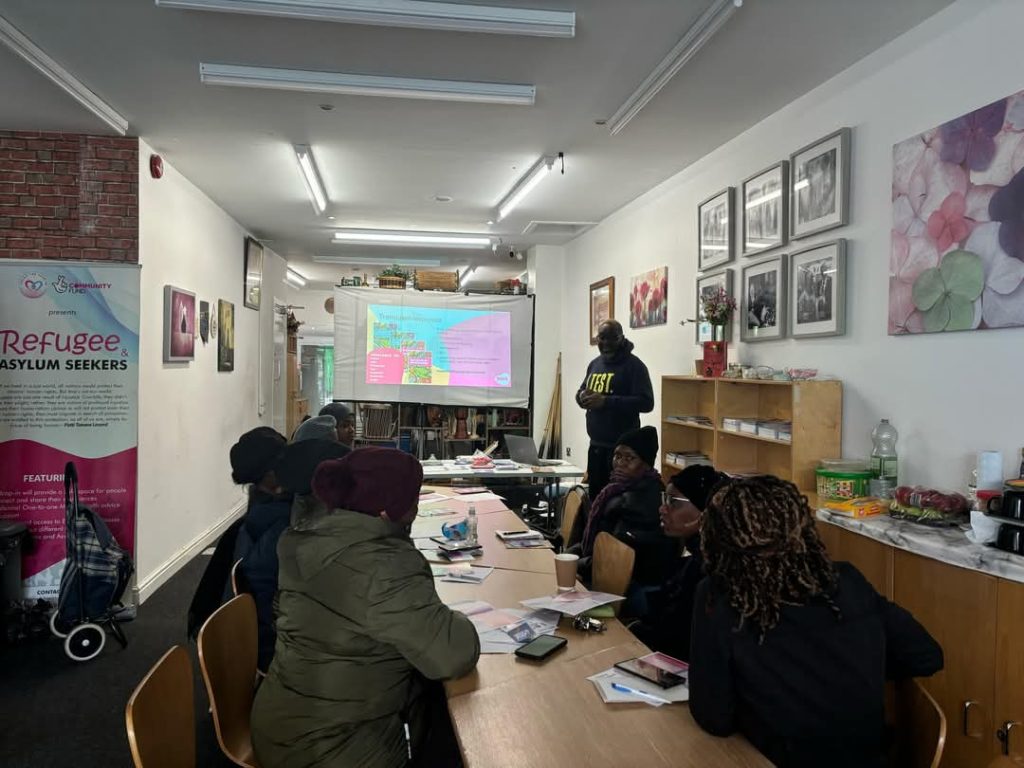
4. Standing Up for Vulnerable Voices
Migrant and asylum seeking communities face extreme challenges, especially with legal access and housing. Greater Manchester is home to over 5,000 asylum seekers, many in precarious situations.
GMIAU (Greater Manchester Immigration Aid Unit) is a lifeline for these residents, offering legal advice and advocacy. In Rochdale, they collaborate with grassroots charities, including Caring and Sharing Rochdale to ensure migrants and asylum seekers have access to culturally aware support, food, mental health guidance, and belonging.
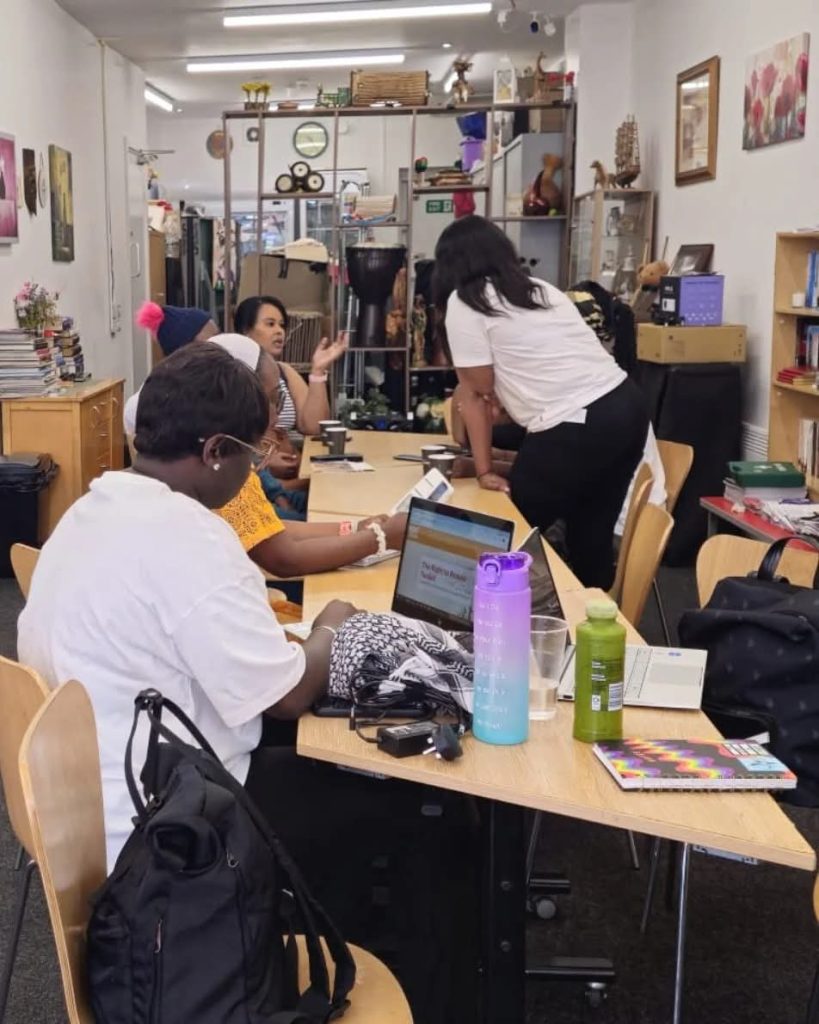
5. Capacity Building and Voice Amplification
In a survey of Greater Manchester charities, 52% said they lacked the skills or staff capacity to apply for funding or run digital campaigns.
That’s where organisations like Caring and Sharing Rochdale shine, not only by offering direct support to people, but also mentoring emerging leaders within marginalised communities. From youth led initiatives to women’s health awareness to empowerment advocacy, we’ve helped amplify under-heard voices across Rochdale. When local authorities collaborate with community rooted organisations like ours, they invest in long-term social infrastructure.
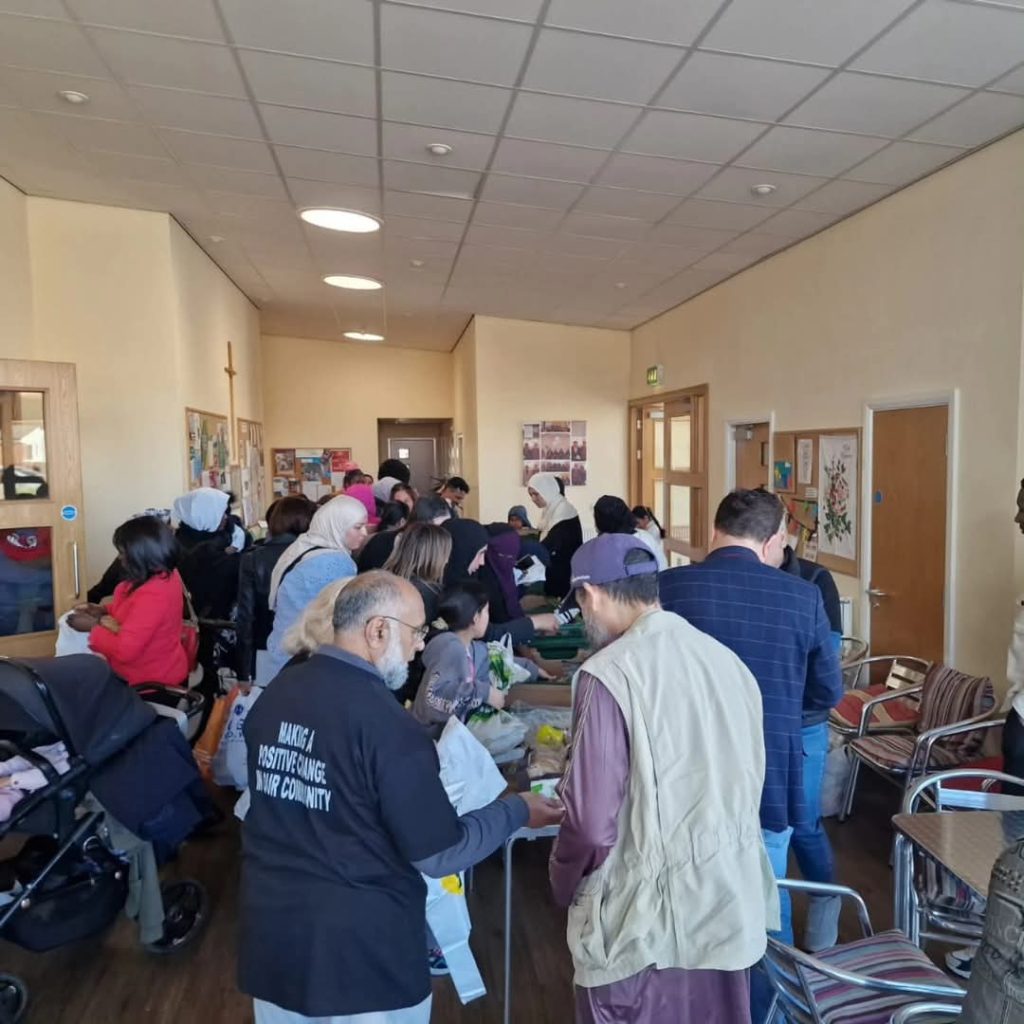
Rochdale as a Model, the World as the Audience
Rochdale, the birthplace of the cooperative movement, continues to lead by example. The collaboration between its council, housing bodies, healthcare champions, legal advocates, and grassroots organisations shows what’s possible when community is not a client, but a co-creator.
Whether in Rochdale or Rio, Nairobi or Newcastle, the message is the same: community-led charities need trust, space, and sustained support.
By learning from Rochdale’s champions – Rochdale Borough Council, Rochdale Town Hall, BHA for Equality, GMIAU, and Caring and Sharing Rochdale, we can all work toward a future where no one is left behind. Because in every town, community is infrastructure, and it’s time we treated it that way.
Just as every building relies on a solid foundation, our lives are shaped by the relationships we build. Everyone’s certainly a product of one or more relationships.
However, various misconceptions constantly threaten and even destroy the humane structures that hold our world together. In a globally interconnected society, it’s high time we skipped the borders and explored life from a broader perspective.
This is what we’ll be doing in this read, stereotype-busting the following myths that might have webbed you hanging in the unknown. Let’s go!

Reality: Africa boasts a rich cultural heritage, including ancient civilizations like Egypt, Nubia, and Aksum, which made significant contributions to knowledge, architecture, and art.
Reality: Geishas are highly skilled entertainers trained in music, dance, and poetry. They represent an important part of Japanese culture, celebrating art and tradition.
Reality: Vikings were not only warriors but also skilled traders, farmers, and craftsmen, with a complex social structure that included laws, arts, and communal activities.
Reality: Carnival is a vibrant celebration of the cultural fusion between African, European, and Indigenous influences, featuring music, dance, and elaborate costumes that honour Brazil’s diverse heritage.
Reality: Although the caste system persists, social mobility and reform efforts are ongoing, with many individuals breaking traditional boundaries and striving for equality.

Reality: Many Buddhist monks actively engage in community service, social activism, and humanitarian work, contributing positively to society while practising mindfulness and compassion.
Reality: Many Native Americans live in urban areas and are integral members of modern society, contributing across various fields while preserving their cultural heritage.
For a more inclusive world, we must break down these misconceptions and see life through diverse cultural lenses. Stereotypes not only limit marginalized cultures but also restrict those who hold them—keeping perspectives narrow and far removed from the complex beauty of our shared humanity.
This article presents the top 5 proven strategies to shift from working harder to working smarter—by embracing teamwork.
The true strength of any successful organization lies in its teamwork. It acts as a catalyst for faster, more effective performance and leads to extraordinary outcomes.
Here’s why teamwork matters:

Teamwork allows for an efficient division of labour, enabling individuals to leverage their strengths while covering each other’s weaknesses. The result? Increased productivity and greater efficiency across the board.
When collaboration flourishes, fresh perspectives and new ideas emerge. Teamwork sparks innovation and creative problem-solving. After all, as the saying goes, “Teamwork makes the dream work.”
One of the best ways to foster strong human connections is to seek and offer support. When team members know their contributions are valued, they feel more engaged and confident in their roles.
Teamwork brings together a variety of skills, experiences, and perspectives, which leads to better decision-making. More ideas and insights allow for well-rounded and informed choices.
With a mix of personalities and expertise, teams become agile in their approach to challenges. This diversity promotes adaptability, enabling a quicker response to unexpected changes.

With these benefits in mind, it’s clear where you should belong—working alone or joining a team of talented individuals.
P.S. If you’re convinced that all effort equals hard work and success, beware: burnout could be the only reward down that road. Working smart means leveraging the power of teamwork to achieve more without breaking yourself in the process.
There are five magic words—keys—to unlocking peace. Do you know them?
In today’s fast-paced world, where everything seems to move at lightning speed, finding inner peace can feel like an impossible challenge. But don’t worry; we’ve cracked the code! The passcode to peace is simply “B G M N S.”
This code admits more than one, so tag along to explore this code:

Setting actionable boundaries on technology use is crucial for finding inner peace. Limiting screen time—especially on social media—and creating tech-free times or zones at home help avoid information overload and negativity. This practice is often called a “digital detox.”
According to Richard Lazarus’ Cognitive Appraisal Theory, stress often stems from how we interpret events. When we focus on perceived threats or challenges, stress intensifies. A proven way to reclaim your peace is by practicing gratitude. Keep track of positive moments in your life, from the smallest wins to the biggest achievements, to shift your mindset toward positivity.
Spending time in nature is a simple yet powerful way to calm the mind. Whether it’s taking a walk, gardening, or simply sitting in a park, connecting with nature reduces stress and promotes inner calm.
Incorporate mindfulness techniques into your daily routine—like meditation, deep breathing exercises, or yoga. These practices help you center your thoughts and stay present in the moment.
Declutter your living space. A tidy environment can lead to a clearer mind, making it easier to find inner peace.

Peace is personal, and everyone’s journey is different. If needed, don’t hesitate to seek professional support. Remember, you only live once (YOLO), so make peace a priority and find the solutions that work best for you.